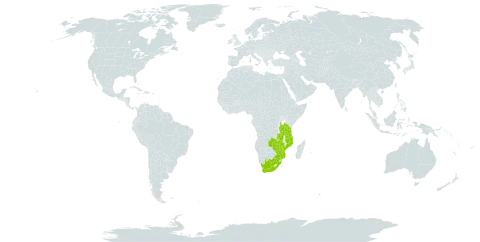Inflorescences axillary, dense, distinctly strobilate, the flowers mostly held at right-angles to the axis; peduncle short, 0–4 mm long; rhachis 10–35 mm long, densely yellow bristly hairy; pedicels 4 mm long; bracts 3–7 × 1.5–4.5 mm, ovate, broadly elliptic or somewhat obovate, sometimes slightly falcate, conspicuously covered, particularly on or near the margins, with long yellow bristly hairs; bracteoles 3–4 × 1.2–1.5 mm, lanceolate or elliptic, acute or obtuse, pubescent and margined with bristly hairs.
Leaves (16)22–32(36)-foliolate; leaflets 2–8 × 0.8–2.5 mm, narrowly oblong-lanceolate or linear-oblong, acute and oblique or very slightly falcate at the apex, obliquely rounded at the base, with short tuberculate hairs on the slightly serrulate margins and on the almost marginal main nerve beneath; petiole and rhachis together (10)15–45 mm long; petiolules minute; stipules 3–5 × 1.5–2 mm, ovate-lanceolate, pubescent and ciliate, persistent.
Calyx covered with short and rather longer yellow tubercular-based hairs, 5.5–10 mm long, the upper lip divided for 1.5–2 mm into 2 very obtuse rounded lobes, the lower lip divided for c. one-third to half its length into 3 oblong obtuse lobes, the inner usually the narrowest.
Fruit of 2–5 articles, each article compressed ellipsoid, 3.3 × 2.5 mm, pubescent with fine tubercular-based yellow hairs and slightly reticulate.
Stems very sticky and glandular, covered with shorter pubescence and also with longer yellow tubercular-based hairs.
Standard golden-yellow, flushed red, 10–12(14) × 6–8(11) mm, rounded oblong, glabrous; wings and keel yellow.
Seeds blackish-red, 2.8 × 2 × 1 mm, compressed-ellipsoid; hilum minute, eccentric.
Erect much branched shrub 1.8–4.5 m tall.
Ovary 2–5-ovuled, pubescent.

